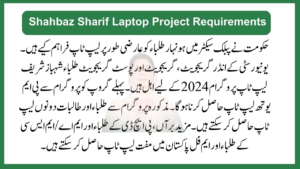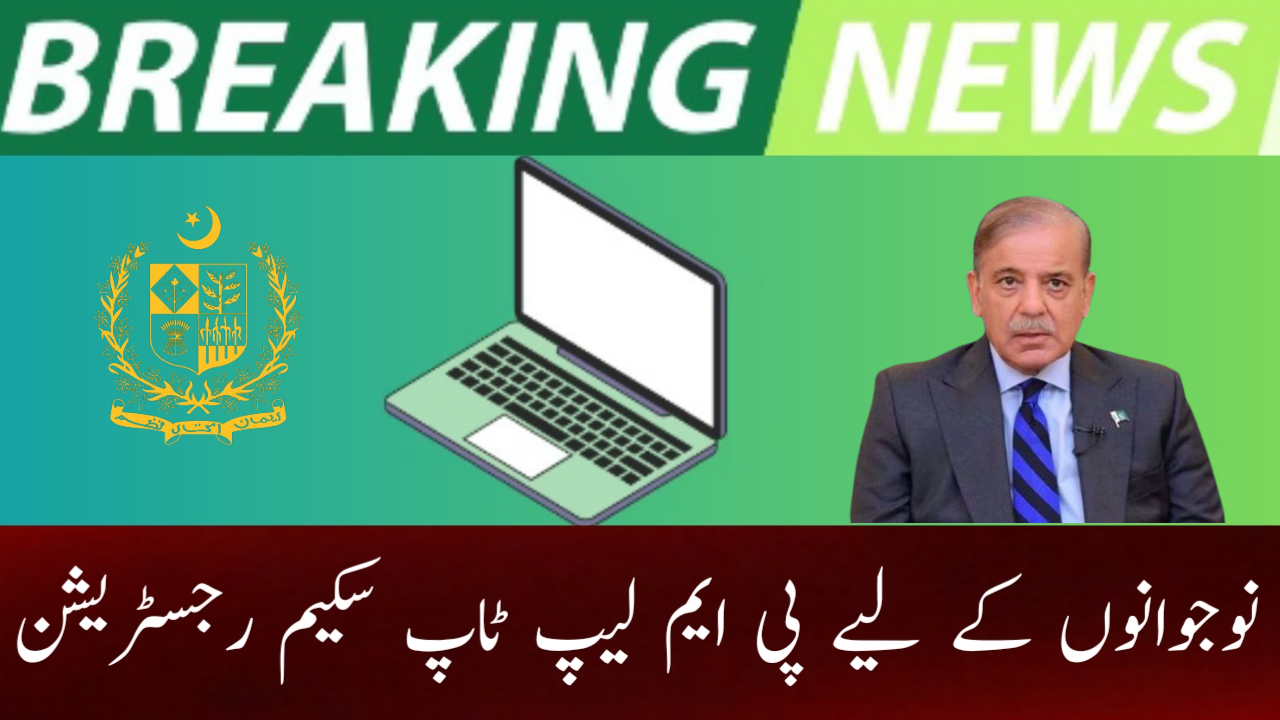Prime Minister’s Laptop Program 2024: Registration Opens for Third Phase
Prime Minister Shahbaz Sharif has launched the third phase of the Prime Minister’s Laptop Program 2024, offering free laptops to students in Pakistan. This initiative aims to equip students in colleges, universities, and technical institutes with the necessary technology to aid their education.
Program Announcement
The Prime Minister has introduced the new Prime Minister Youth Laptop Program 2024. The Higher Education Commission (HEC) will soon begin online registration for this initiative. Students can check their application status on the PM Laptop Scheme Portal and apply online through the PM Youth Program portal at laptop.pmyp.gov.pk until March 23, 2024.
Eligibility Criteria
To qualify for the PM Laptop Program 2024, students must meet the following criteria:
- Current Enrollment: Must be currently enrolled in a public sector institution.
- Educational Level: Undergraduate, graduate, postgraduate, PhD, M.A./M.Sc, and MPhil students are eligible.
- Gender: Both male and female students can apply.
Ineligibility
The following students are not eligible:
- Students enrolled in private institutions.
- Students who have already received a laptop under previous federal or state Youth Laptop Programs.
- Foreign students outside Azad Jammu and Kashmir.
- Students who have completed their diplomas.
Application Process
Interested students should visit the official HEC website and complete the registration form before the deadline. Note that there is no walk-in application process; all applications must be submitted online.

FAQs
1. What is the Prime Minister’s Laptop Program 2024?
The Prime Minister’s Laptop Program 2024 is an initiative by the Pakistani government to provide free laptops to students in public sector educational institutions, aiming to promote technological advancement and support education.
2. Who is eligible to apply for the program?
Eligible students include those who are:
- Currently enrolled in public sector institutions.
- Studying at undergraduate, graduate, postgraduate, PhD, M.A./M.Sc, or MPhil levels.
- Both male and female students.
3. Who is not eligible to apply?
Ineligible students include:
- Those enrolled in private institutions.
- Students who have previously received a laptop under any federal or state Youth Laptop Program.
- Foreign students outside Azad Jammu and Kashmir.
- Students who have completed their diplomas.
4. How can students apply for the program?
Students can apply online by visiting the PM Youth Program portal at laptop.pmyp.gov.pk. Applications must be submitted by March 23, 2024.
5. Is there an offline application process?
No, all applications must be submitted online through the official portal. There is no walk-in application process.
6. When does the registration start and end?
The registration for the third phase has started and will end on March 23, 2024.
7. How can students check the status of their application?
Students can check their application status on the PM Laptop Scheme Portal available on the PM Youth Program website.
8. What is the objective of the Prime Minister’s Laptop Program?
The main objective is to promote a technological culture in Pakistan by providing free laptops to students, thereby enhancing their access to modern technology and supporting their educational needs.
9. Which students will receive laptops first?
Priority will be given to the first group of students who meet the eligibility criteria and apply within the specified timeframe.
10. Where can students get more information about the program?
Students can visit the official HEC website or the PM Youth Program portal for more details and updates about the program.
Conclusion:
The Prime Minister’s Laptop Program 2024 aims to foster a technological culture in Pakistan. By providing free laptops to students, the government hopes to enhance their access to modern technology and support their educational endeavors. This initiative was first announced by the Chief Minister of Punjab for PhD students and is now expanded to include various educational levels across the country
